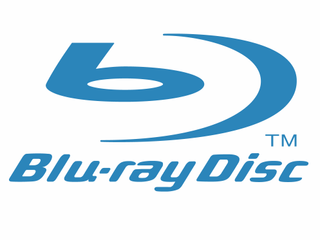Are movie downloads Blu-ray's biggest threat?
IPTV vs optical discs: Is the web ready to take the burden?

At CES this year, Blu-ray was the biggest winner in terms of the HD format war. HD DVD lost one of its biggest advocates, Warner Bros, when the studio decided to exclusively support Blu-ray in future. We thought that HD DVD was
. But one analyst thinks that both formats are still losing, with consumers bearing the brunt of the format war, which helps nobody.
"No side won this week - but in reality, both camps lost," said Krishna Chander, senior analyst at iSuppli. "Every day the Blu-ray and HD DVD camps spend prosecuting this standards war represents a day lost in their race to remain relevant. Amid the rise of exciting new digital media offerings like YouTube, iTunes and on-demand services, the window of lucrative opportunity is closing for both standards.
"Consumers likely will buy more Blu-ray players and more discs due to the availability of the Warner content," Chander said. "However, the company's decision to go with Blu-ray hinged on short-term pricing declines for the Blu-ray players."
Web vs Disc
While not commenting on the relative virtues of the standards, Chander believes Warner's "cost-based decision" doesn't take into account two important factors: technical merits and long-term benefits for consumers.
Get daily insight, inspiration and deals in your inbox
Get the hottest deals available in your inbox plus news, reviews, opinion, analysis and more from the TechRadar team.
"With features and pricing still evolving quickly for both formats, consumers in 2008 must weigh the choices for themselves and make a decision. Otherwise, they can wait out the war for another year while enjoying HD movies on their cable and satellite providers' on-demand services," says Chander.
The key point here is that the format war helps absolutely no one. No one benefits from it: not Sony; not Toshiba; and certainly not us, the consumers. At the same time, no one asked for it either - certainly not the player manufacturers.
Unwanted war
When we spoke to Frank Simonis, chairman of the Blu-ray Disc Association, at CES (the HD DVD camp cancelled all press conferences and interviews) he admitted that the format war had been bad for everybody.
"We haven't asked for the format war. Unfortunately it happened. We couldn't solve it in the early days. And we now hope that by the steps that have been taken that we are very close to getting this resolved. But there is still work to be done," Simonis said.
"We hope of course that common sense takes over in this business and then we can focus on giving the consumer the best in the world on HD. And that's our prime focus," he said.
Ticking clock?
The iSuppli analyst seems to think that both camps are wasting time in an industry which has a fast-closing cut-off point. But this point we also put to the BDA who inevitably rebuffed the argument.
The fact is that BD movies are already selling better than DVDs did at the same time in their life cycle. Blu-ray players are cheaper than DVD players were at the same time in their life cycle. And there's a hell of a lot more buzz about Blu-ray than there was about DVD.
So will optical formats lose out to the likes of the iTunes download store? While digital downloads do pose a threat to the future of optical discs, it seems crazy to suggest that we're ready to switch over to downloads already.
Are we ready?
The future will definitely revolve around the internet. The BDA itself says Blu-ray will be the last optical disc format. And sure, they would say that Blu-ray has a good 10 years in it yet.
But let's remember that consumers are used to buying physical copies of movies. Relying entirely on downloads would present a number of problems that we haven't even begun to face yet. For instance: if we switch to downloads, what happens when we fill up the hard drives on our IPTV boxes? Do we have to buy a new box? If so, imagine the hassle of having to reconnect different devices to find different content.
Compare that to picking up a disc off a shelf, and slotting it into a player.
James was part of the TechRadar editorial team for eight years up until 2015 and now works in a senior position for TR's parent company Future. An experienced Content Director with a demonstrated history of working in the media production industry. Skilled in Search Engine Optimization (SEO), E-commerce Optimization, Journalism, Digital Marketing, and Social Media. James can do it all.
Most Popular



